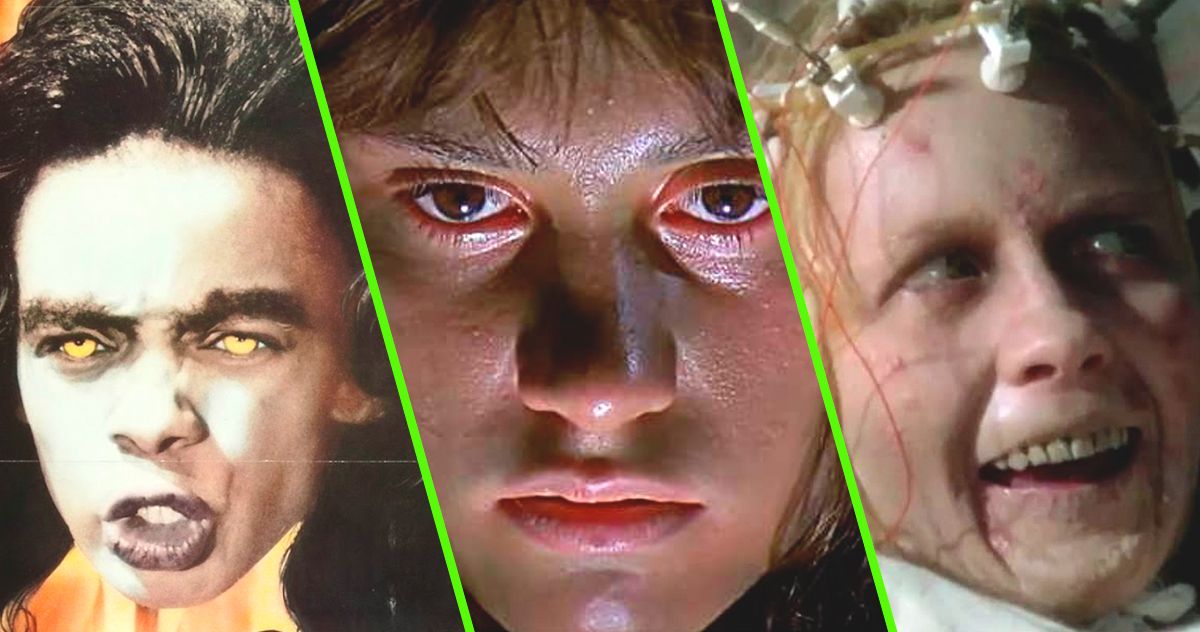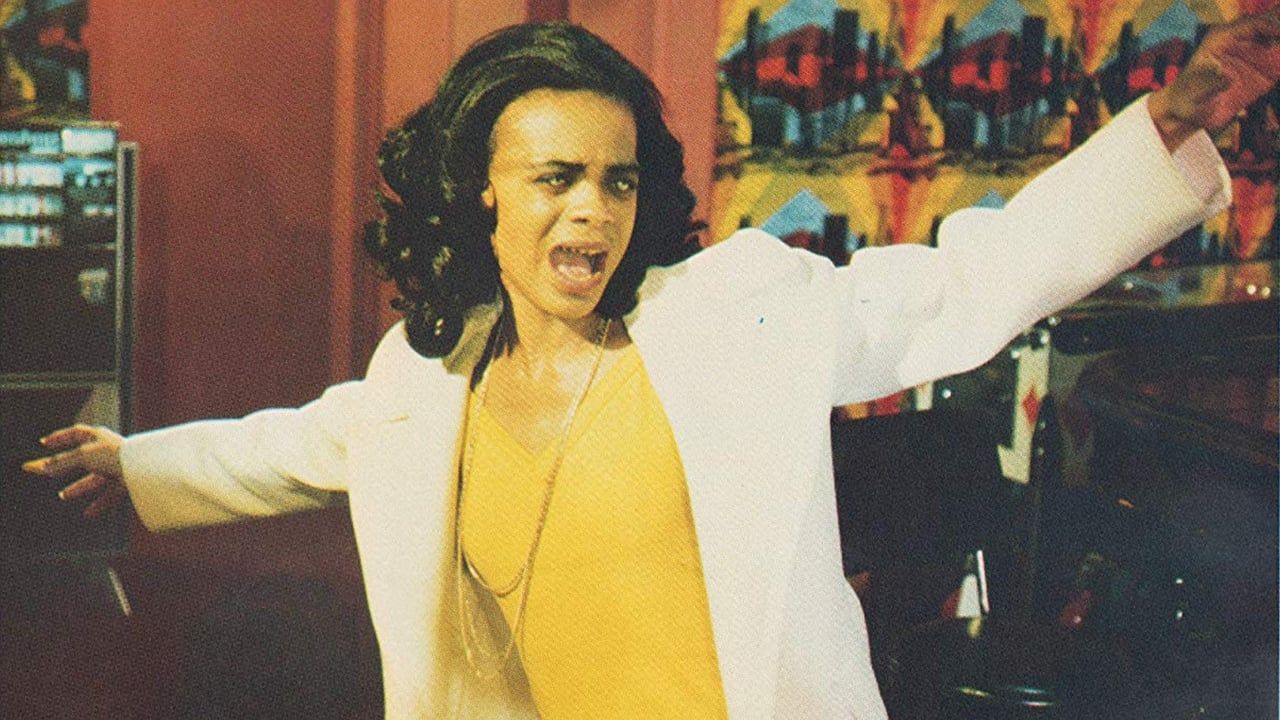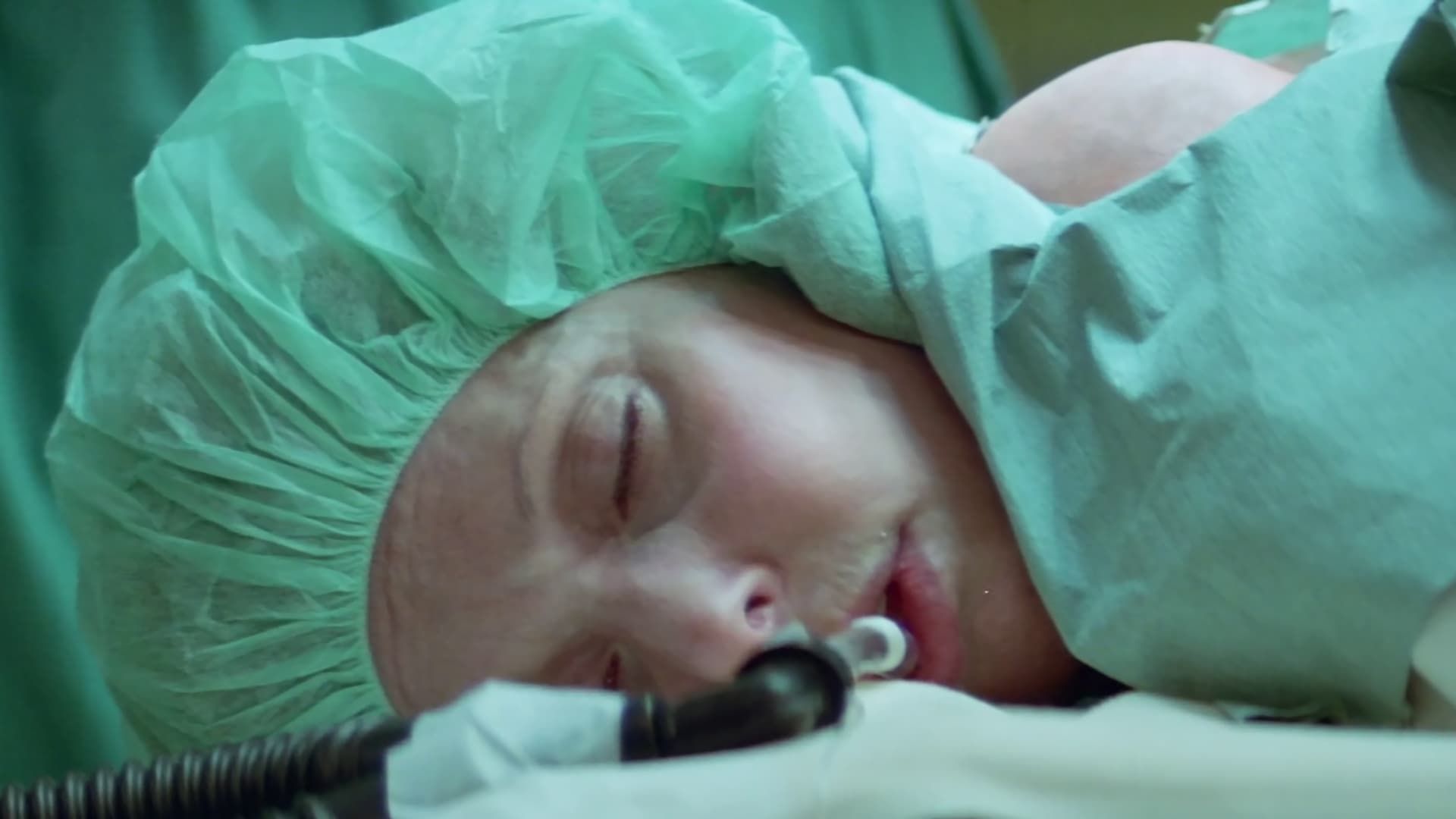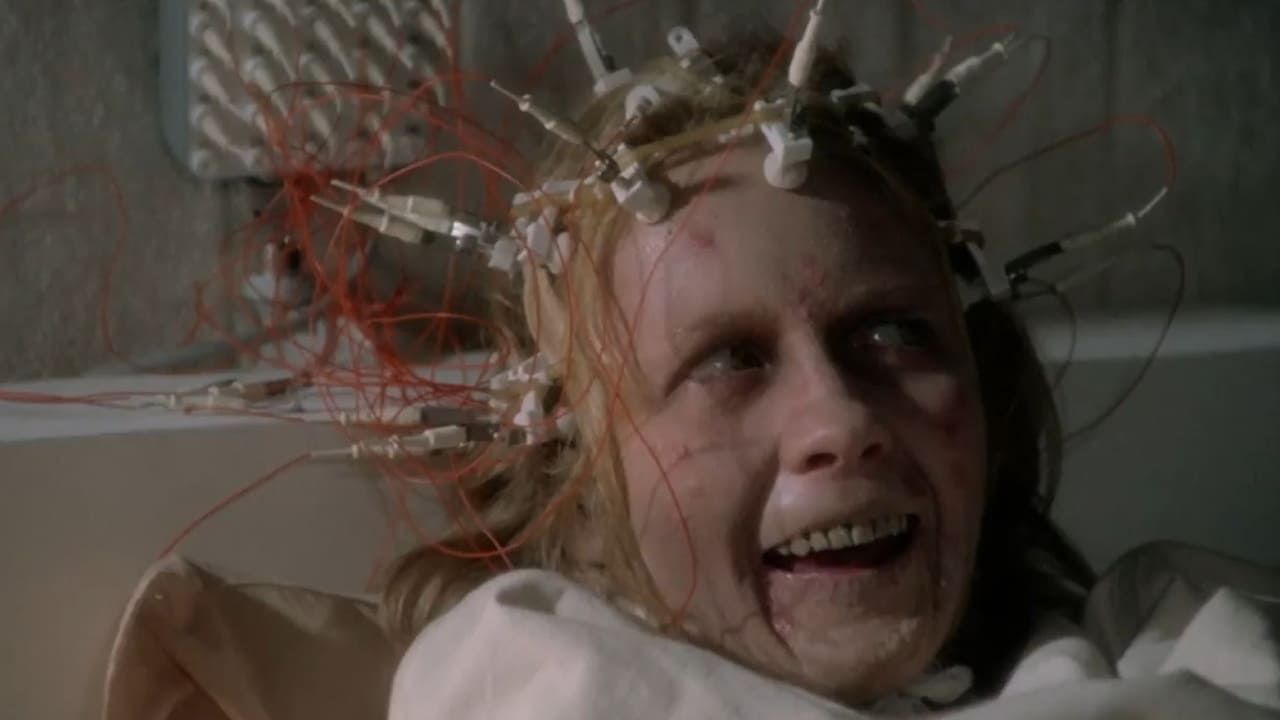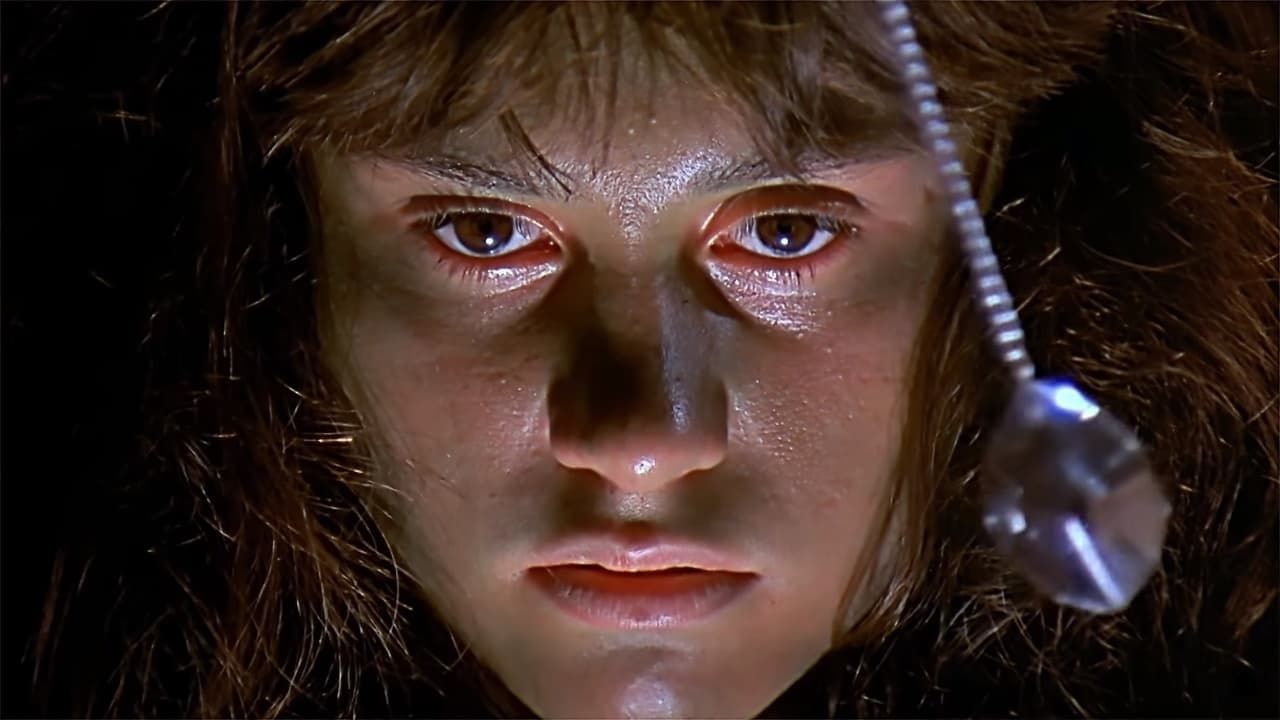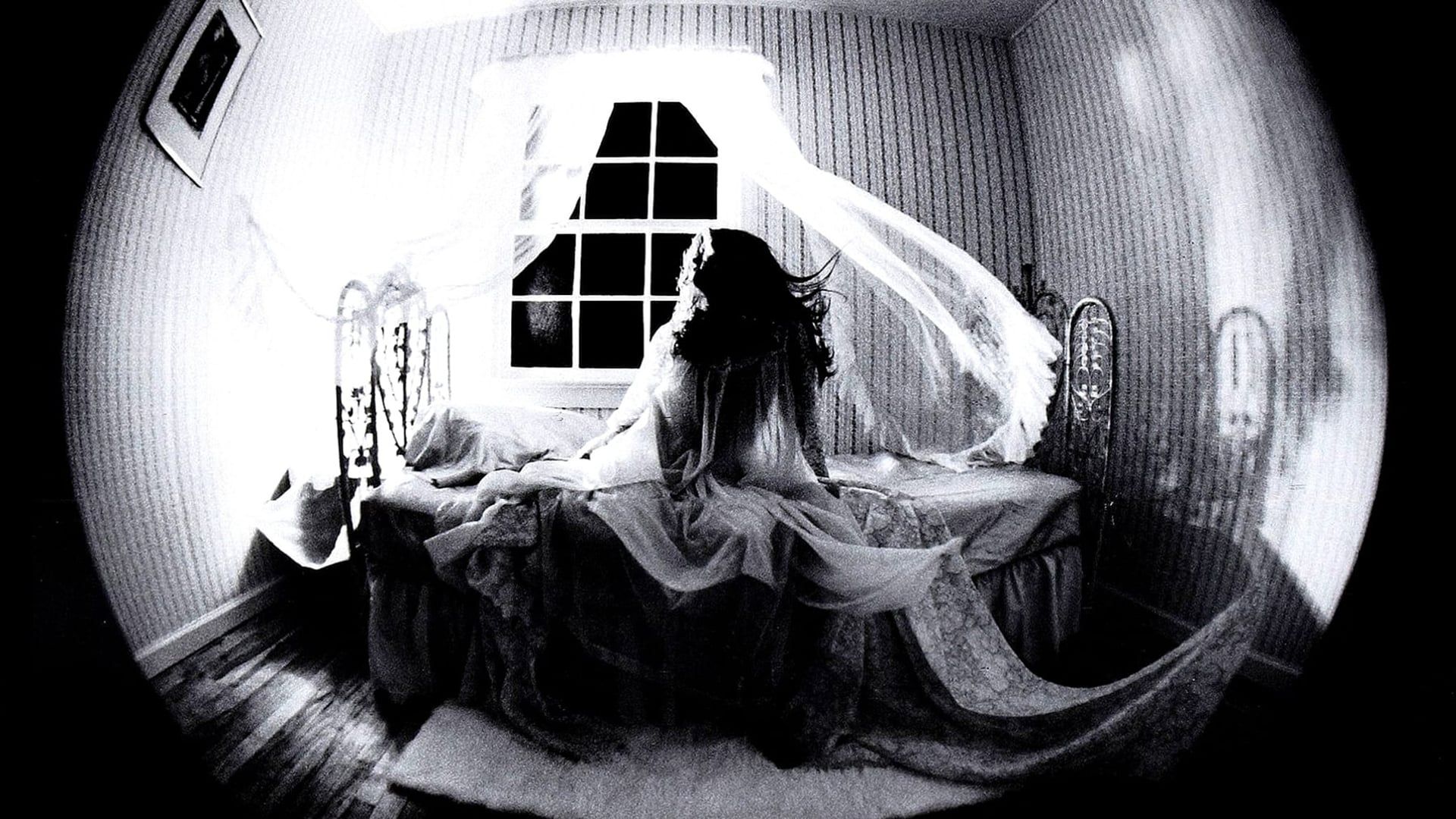Peacock has a revival of The Exorcist trilogy on the way, with the first film set for an October 2023 release. Fans have expressed mixed reviews over the classic being touched, and understandably so. William Friedkin created a lasting horror masterpiece with the 1973 film The Exorcist, which many still regard as the scariest film ever made.
On a positive note, Ellen Burstyn will return as Reagan's mother for the first revamp. On another arguably positive one, The Exorcist II: The Heretic, widely regarded as one of the worst sequels ever made, is probably due for a new and improved revision. No matter where you sit on the concept of the classic series being redone, discussions regarding The Exorcist urge audiences to revisit the legendary haunt and its sequels. Every great, groundbreaking horror spurred brazen knock-off films which attempted to cash in on those pioneering flicks' popularity. The Thing, Halloween, Alien, and nearly every work of scary movie mastery was followed by a laundry list of films that either borrowed from the original or shamelessly copied it directly. The Exorcist spawned an almost countless number of possession flick knock-offs in America and beyond.
Many of these films are heinous pieces of garbage, redeemed only by their laughably cheesy entertainment value. Others, though uninspired, offer an original touch or a special feel all their own. With conversations regarding The Exorcist circulating the net, now's a great time to look back at a few of these rip-offs... specifically, demonic possession films that are worth watching for one reason or another. This isn't to say these are fantastic films or solid pieces of horror. Several are, but we'll highlight rip-offs that are at least sure to keep you entertained.
Abby (1974)
William Girdler, the king of Kentucky grindhouse, was often referred to as a "copycat filmmaker," as he built a career directing horror films that bore resemblance to or directly pulled concepts from hot horror films at the peak of their popularity. Early in his career he made a near budget-less Three On A Meathook, which has shockingly similar elements to Hitchcock's Psycho, but enough inventive surprises to find its own terror. In fairness to Girdler, Three On A Meathook was released years before Texas Chainsaw Massacre and Deranged, making him the first low-budget grindhouse director to explore the creative possibilities of the Ed Gein case. Girdler may very well have been ahead of his time, in impressive enough fashion to land a contract with American International. His first three bigger budget pictures were a trio of Blaxploitation efforts, capitalizing on the draw of films like Blacula and Blackenstein. The most renowned of the three is Abby, a 1974 possession tale that not only cashed in on the Blaxploitation craze, but also ripped blatantly from The Exorcist.
Abby Williams (Carol Speed) a Christian marriage counselor, lives with her pastor husband (William Marshall) and bible-thumping mother (Juanita Moore). Her archaeologist father-in-law (Terry Carter) while on expedition in Africa, unleashes an ancient evil spirit of sexuality, which takes hold of Abby. She becomes violent, angry, and hyper-sexual. Abby truly is best summed up as a Blaxploitation rip of The Exorcist, doing little to differentiate itself in terms of plot, story, and play-out. It's a little bit scary, a whole lot of silly, and strange 70's fun. As in The Exorcist, language is foul and there's no shortage of vulgarity, making the flick a goldmine of inappropriate laughs. Groovy on set pieces, the most 70's looking rooms you've ever seen, and a seemingly out of place disco score, set the film up for a wild good time.
Girdler borrows from William Friedkin rather shamelessly, with flashes of demon faces as the possession takes place, hospital visits where outbursts are written off as mental illness, and the same kind of demonic possession antics. Abby does differ from Reagan in age, and she's far hornier. Girdler can't build suspense like Friedkin, nor sustain an eerie realism, but for what Abby is - a cheap Blaxploitation knockoff of the horror classic to end all horror classics, it's a groovy exploitation of craziness.
The Manitou (1978)
The man William Girdler returned to Exorcist rip-offs in the late 70's with a somehow even weirder effort, The Manitou, which would unfortunately be the director's last film. It's also his most off-the-wall, absurd, and enjoyable (though Grizzly and Day Of The Animals are up there in terms of pure entertainment).
San Francisco woman Karen Tandy (Susan Strasberg) enters a hospital, concerned about the giant tumor growing on her neck. Doctors believe it's the fetus of a living creature growing inside of her. Psychic Harry Erskine (Tony Curtis) urges Karen not to worry, until supernatural tragedies start occurring. One of Harry's customers starts speaking in tongues and fatally throws herself down a flight of stairs. A surgeon attempting to remove Karen's tumor cuts off their own hand instead. Harry seeks the help of another fortune-teller, Amelia Crusoe (Stella Stevens) to understand these supernatural occurrences. As Karen's tumor grows, Dr. Snow (Burgess Meredith) speculates that a 400-year old, vengeful Native American spirit might be growing within it. After this speculation Harry travels to North Dakota, enlisting the help of medicine man John Singing Rock (Michael Ansara) to exorcise the ancient evil growing within Karen.
Calling the 1978 film, The Manitou, a knockoff of The Exorcist could be considered unfair. It's The Exorcist's acid-dropping cousin, who also happens to have a passion for body horror, Native American lore, and the dark arts. The film's final moments veer completely off the rails into a cheesy sci-fi world. The Manitou is batshit in the best possible way, boasting an outrageous story, righteously silly 70's effects work, and campy performances from Hollywood royalty. When Burgess Meredith is present you know it must be horror gold. Tony Curtis hams it up as the eccentric fortune-teller Harry, sporting sorcerer get-up as he prances around his apartment over-delivering every line. Susan Strasberg plays a convincingly vulnerable heroine who's too believable for this madness. Michael Ansara is also a delight as the Native American medicine man, but we won't question his Vaudevillian cadence.
The Manitou has it all, every horror trope imaginable. The goofiest effects work out there. Girdler never takes his foot off the gas to give audiences a moment to process. It's an absurd good time you simply have to see to believe. No description can do it justice, and too much description takes from the fun. It's a shame the world couldn't see more from William Girdler, who died tragically in a helicopter crash before the film's release.
Beyond The Door (1974)
If The Manitou is insane Beyond The Door, produced in 1974, is criminally insane and brazenly less original. Legendary Greek genre producer Ovidio G. Assonitis has produced a laundry list of B-flicks throughout the span of 5 decades, and he directed just a handful. Beyond The Door, the outrageous Italian Exorcist and Rosemary's Baby ripoff, was his first big hit, grossing over $40 million worldwide. Today it maintains a devout cult fanbase for being a hysterical gaudy mess that does have an unsettling surreal feeling and a few shocking scares going.
Jessica Barrett (Julia Mills) is a mother of two and currently pregnant with her third child. She lives an uppity San Francisco life with her record producer husband Robert (Gabriele Lavia). During the pregnancy, Jessica develops strange, unnatural feelings. She gradually starts exhibiting more erratic behaviors, even speaking in a demonic voice. Fans of The Exorcist owe themselves a dark night alone watching Beyond The Door, and the crazier folks may actually prefer it. The usual pitfalls of 70's Italian horror are all present, i.e. ridiculous dubbing, awkward edits, and little sense, but Assonitis blesses this zany demonic chiller with a hallucinatory touch.
In The Exorcist, Friedkin frames a real-feeling world, opening with what feels like a raw drama. When the possession takes hold of Reagan, supernatural terror effectively turns this real world upside down. Assonitis, on the other hand, doesn't stage anything to appear as though it's the plain old reality we know. The entirety of Beyond The Door is a bad dream. An uncanny atmosphere never fluctuates. Camera work is disorienting. Characters behave hollowly. Barrett's children curse profanely. Early in the film we cut abruptly from the devil's first appearance to Barrett shopping in San Francisco as a funky track plays. Assonitis gives us nothing less than spectacularly weird.
Despite any and all silliness, the possession scenes can be quite haunting. Mills is spectacularly spooky, relying on facial expressions beneath grotesque makeup that will genuinely stick with you. Vulgar phrases spouted by the demon in Jessica are more disturbing than funny - "Lick the whore's vomit." Pure trash insanity. Beyond The Door offers plenty of unintentional hilarity, but Assonitis impressively sneaks in bits of hair-raising horror that you'll be embarrassed to admit you're frightened by.
Seytan(1974)
An abhorrent, cheap, and flagrant Turkish knockoff, Seytan doesn't attempt to wedge in an inspired note. It's practically a scene-for-scene remake of Friedkin's masterpiece, without a budget or directorial vision. We can't pretend it's good or scary. Seytan derives all entertainment value from being hilariously bad.
A young girl Gul (Canan Perver) takes a liking to playing alone with a Ouija board. Her mother (Meral Taygun) who doesn't even have a name, becomes concerned when Gul starts exhibiting demonic behaviors. See The Exorcist plot, replace Catholic undertones with Islamic ones, delete any themes. Seytan is one for a drunk night with friends when you need a laugh. Not a scare to be had, and not an inventive touch on display. The acting is atrocious and the effects work spurs memories of making short films with your friends in adolescence. You're also pressed to find a dubbed version. Just sit back and watch as young Gul is overtaken by the devil himself. She doesn't even try to fight it. In fact, she almost seems to get a strange enjoyment out of demonic possession.
The mother in Seytan, played by Canan Perver, is far less sympathetic than Ellen Burstyn in The Exorcist, coming off as plain mean. When you can't feel bad for characters or sense so much as a touch of atmosphere, you have no choice but to get enveloped in the laughably cheap effects work. Lights turn on and off mid-scene to hide strings during levitations. Head spins appear cornier. Even the split pea soup vomit more obviously resembles soup. The vulgar language is toned down, which I find disappointing, but Seytan does have one original element going for it - the vibrant colors are Giallo-esque. One couldn't mark this film artful, but the colors do lend to an unearthly look.
The Antichrist (1974)
Of the many 70's Italian productions that ripped directly from The Exorcist, Alberto De Martino's The Antichrist is perhaps the most stylistically sound and visually haunting; certainly one of the sleaziest and most exploitative. Regardless of how clearly it imitates, De Martino exhibits a vision of his own, adding fresh plot points and utilizing frightening imagery that's unique to this unsavory haunt.
A young woman, Ippolita (Carla Gravina) is bound to a wheelchair, depressed, and sexually frustrated. In the hopes of healing her mind she sees a well-meaning psychiatrist (Mel Ferrer) who conducts hypnosis. This session unlocks repressed, dark memories of her time as a Satan-worshipping witch. Soon, this dark past materializes into demonic possession, leading Ippolita to lure in and violently attack men. Nearly everything The Antichrist lacks is made up for in some disturbing, sleazy fashion. The supporting acting is rough, but Carla Gravina excels as the wheelchair-bound victim Ippolita. Her descent into Hell is a dark and atmospheric one to feel along with. This spellbinding journey into demonic possession is accompanied by a satanic orgy and cavalcade of other unsettling images that don't shy from the realms of witchcraft and bestiality.
De Martino does lift scenes almost directly from The Exorcist, such as a stair-falling incident and plenty of split pea soup vomit, but The Antichrist is his own brand of Euro-horror evil. There's no shortage of nudity or violence. Effects work is high in cheese factor. Some of the attempted scares are dated and lame. This is of course inevitable given the time and place of production, knowing genre rip-offs often provided opportunity to out of work American actors who no longer had a passion. That said, The Antichrist is grisly, disturbing stuff. On a great note, the score from Ennio Morricone and Bruno Nicolai is unforgettably chilly, frequently catapulting otherwise corny scenes into eerie territory. For every hokey moment there's one to crawl under your skin. I can't mark The Antichrist as an amazing work of horror, but it's no doubt one of the most memorable of the 'Exorcist Rip-Offs.'

